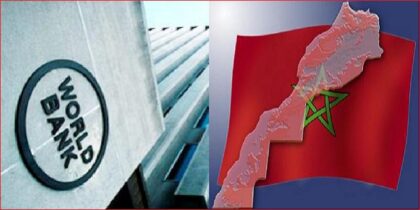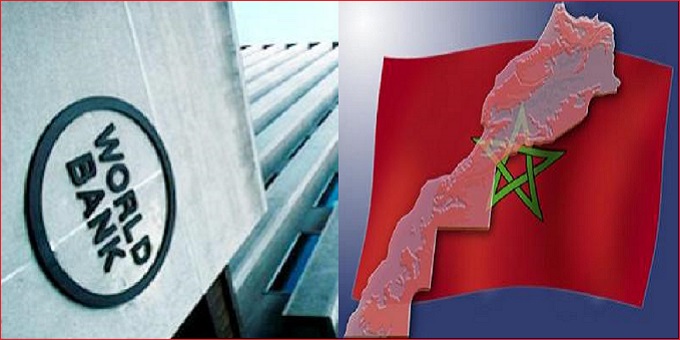 The Moroccan government’s response to the coronavirus outbreak was “swift and decisive,” the World Bank said in its Economic Monitor report for July 2020.
The Moroccan government’s response to the coronavirus outbreak was “swift and decisive,” the World Bank said in its Economic Monitor report for July 2020.
“The government’s proactive response enabled the country to avoid a massive outbreak, thus saving lives,” said the Washington-based institution, noting that continued good policy measures are “critical” both to shorten and lessen the economic, social, and health trough, and to hasten the recovery.
The World Bank report “Economic Prospects and the COVID-19 Crisis Impact” recognizes Morocco’s ongoing efforts toward socio-economic development across the country, noting that “over the past two decades Morocco has achieved significant social and economic progress due to large public investments, structural reforms, along with measures to ensure macroeconomic stability”.
The document highlights in this connection “dramatic improvements towards eradicating extreme poverty; increased life expectancy, greater access to basic public services, and significant public infrastructure development.” Meanwhile, it notes that the pandemic could set the country’s economic development back amid years of progress.
However, it noted, the pandemic could set the country’s economic development back amid years of progress. “The COVID-19 shock is abruptly pushing the economy into a severe recession, the first one since 1995,” the report says, stressing that “the economy is expected to be doubly impacted by domestic and external economic shocks”.
Therefore, real GDP is projected to contract by 4 percent in 2020, a sharp contrast to the 3.6 percent expansion projected for that year prior to the outbreak.
The labor market is facing a shock of historic proportions, with vulnerable workers, especially those in the informal sector, being particularly hard hit.
“Government assistance has partly mitigated income loss for 19 percent of households, particularly in the informal sector,” the World Bank stresses, adding that “Morocco’s twin deficits are projected to deteriorate but remain manageable”.
Despite lower imports, the current account deficit is expected to widen to 8.4 percent in 2020 reflecting sharp declines in goods export, tourism revenues, and remittances.
“Few sectors have been spared but the contraction is primarily driven by a drop in the production of goods and services, a reduction in exports, disruption of global value chains, as well as a decline in tourism due to travel restrictions and border lockdowns,” the document states.
On the fiscal front, revenue (excluding those from the COVID-19 Fund) are projected to materially contract while expenditures are projected to increase in 2020 in view of additional spending on health, social protection, and other COVID-19 policy responses.
“As a result, the overall fiscal deficit is projected to widen to 7.5 percent of GDP in 2020, almost 4 percentage points larger than projected pre-COVID-19. Both public and external debt are projected to rise but will remain sustainable,” the WB notes.
It is clear that COVID-19 is making its mark beyond Morocco’s public health sphere. However, the World Bank notes that it projects post-pandemic economic recovery with “unusually large uncertainty.” It is possible that Morocco’s economic growth may not resume on trend until 2022.
However, finding ways to reshape Morocco’s socioeconomic landscape could hasten the country’s recovery and prevent further damage.
“Faced with the risk of a protracted pandemic, moving from mitigation to an adaptation phase is key to ensuring a resilient, inclusive, and growing Moroccan economy.”
Despite the threat of recession and a likely dragging economic recovery, the World Bank demonstrates confidence in Morocco’s ability to adapt. It referenced Morocco’s success in developing strategic measures in its environmental efforts. It also expressed that the country has the opportunity to build a more sustainable and resilient economy.



